|
July, 2005
Aug. 2005
Sept. 2005
Oct. 2005
Nov. 2005
Dec. 2005
Jan. 2006
Feb. 2006
Mar. 2006
Apr. 2006
May 2006
June 2006
July 2006
August 2006
September 2006
October 2006
November 2006
December 2006
January 2007
February 2007
March 2007
April 2007
May 2007
June 2007
July 2007
August 2007
September 2007
October 2007
November 2007
December 2007
February 2008
March 2008
April 2008
May 2008
June 2008
July 2008
August 2008
September 2008
October 2008
November 2008
December 2008
February 2009
March 2009
April 2009
May 2009
July 2009
August 2009
September 2009
November 2009
December 2009
January 2010
February 2010
March 2010
April 2010
May 2010
June 2010
July 2010
September 2010
October 2010
November 2010
December 2010
January 2011
February 2011
March 2011
April 2011
May 2011
June 2011
July 2011
September 2011
October 2011
December 2011
February 2012
April 2012
June 2012
July 2012
August 2012
October 2012
November 2012
February 2013
May 2013
July 2013
August 2013
October 2013
November 2013
April 2014
July 2014
October 2014
March 2015
May 2015
September 2015
October 2015
November 2015
August 2016
March 2017
January 2019
May 2019
August 2019
March 2020
April 2020
May 2020
July 2020
October 2020
January 2021
February 2021
August 2021
January 2022
February 2022
April 2022
June 2022
August 2022
September 2022
December 2022
February 2023
April 2023
ČERVENÁ BARVA PRESS NEWSLETTER
Gloria Mindock, Editor Issue No. 115 August, 2023
INDEX
Červená Barva Press August Newsletter, 2023
Hi Everyone! Welcome to the August Newsletter.
It has been a busy time for the press. we have released 8 books since April, 2023:
- Heavenly Bodies at the MET by Ellen Devlin
- Natural Tendencies by James B. Nicola
- A Step Inside by Denis Emorine, Translated from the French by Phillip John Usher
- Them by Gary Fincke
- The Tavern of Lost Souls by Alan Britt
- American Queers by Jesse Malvo Diamond
- The Thing About Men: Stories by Gregory J. Wolos
- Secret Behind the Gate by Zvi A. Sesling
Currently, we are in the final stages for 5 more books.
I would like to thank Steve Asmussen, Allison O'Keefe and William J. Kelle for all your work. All of you are just the best!!!!
Thank you everyone who ordered books for our special buy a book and get a book free.
It ended June 1st. It was a huge success. We cannot thank you enough for the support.
We really need it to keep going!
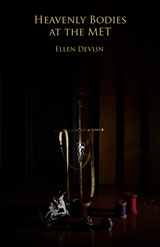
Heavenly Bodies at the MET
by Ellen Devlin
|
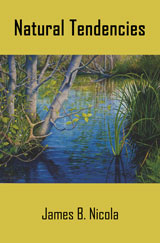
Natural Tendencies
by James B. Nicola
|
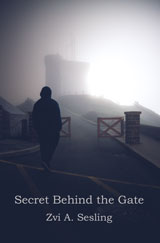
Secret Behind the Gate
by Zvi A. Sesling
|
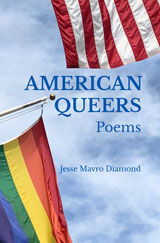
AMERICAN QUEERS
poems by Jesse Mavro Diamond
|
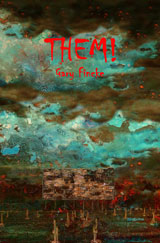
THEM!
by Gary Fincke
|
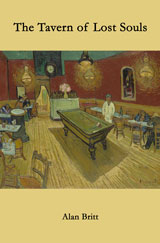
The Tavern of Lost Souls
by Alan Britt
|
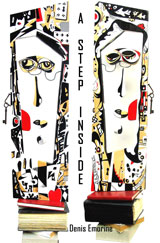
A STEP INSIDE
by Denis Emorine
|
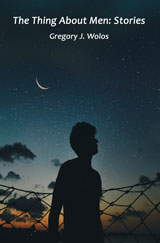
The Thing About Men: Stories
by Gregory J. Wolos
|
|

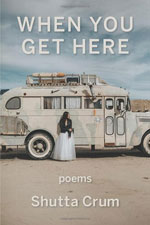
When You Get Here by Shutta Crum
Kelsay Books, 2020
Reviewed by Neil Leadbeater (UK)
Born in Paintsville, Kentucky, Shutta Crum is an award-winning author and poet, educator, story-teller, public speaker
and retired librarian. She is the author of three novels and thirteen story books for young readers.
When You Get Here is her first poetry chapbook for adult readers. She resides with her husband in Ann Arbor,
Michigan and her website is www.shutta.com
Something about the book cover tells us that we are going to be on the road. The first three sections of the book
confirm the fact with reference to driving directions, roads, detours and tolls. Advice, in the form of driving
directions is given to a daughter and also to a son about the life that stretches out before them. This is not
the advice of an over-protective mother smothering her offspring, but of a mother who recognizes the need to let
go so that her young can find their own way in life. They contain the lightest but most useful advice. To her
daughter, she says 'Stop often and ask for directions', 'Don't strand / yourself with zealots upon the
curb of / one idea. They Have their own / pilgrimages to make', and 'Be sure to tell the man you've met / that
he is beautiful'. To her son she says 'Don't take the first road, / or the second. Wait until afternoon / shadows
lengthen, then drive / toward the last glimmerings / of the day.' and 'Tell the companion you'll find / that she
is beautiful'.
The alliteratively titled 'How to Walk Well in the World' is a modern take on Kipling's 'If' but here the approach
is much less direct and beautifully oblique: 'Step softly when storefronts are still groggy with sleep...rescue
wind--tossed sentences blown against your shins'. This is worldly wisdom handed down in an imaginative and poetic way.
Another beautiful pairing of poems occurs later in the book when Crum writes movingly about the death of her parents.
Both poems share a common vocabulary: the unusual adjective 'crook-backed' is used in both poems as a descriptor of
trees and of mountains. In the first poem there are 'veins of leaves' and in the second 'veins of coal'. Rivers flow
through each and both compositions are seasonal: the one set in autumn and the other in winter. Words such as 'clots'
and 'canker' in the first poem and 'flanks' and 'scars' in the second assume a double meaning with reference to
the natural scenery and the physicality of the human body.
The longest poem in the collection, 'A Philosophy of Luminescence' employs scientific analogies to shed new light
on a marriage. Another pairing takes place here which is carried over into the title of the next poem:
'Our Luminous Patient', in which Crum writes about caring for her father in his last illness:
What was there to do but brace
ourselves against the good wood
of this house and shore-up the
ramparts of our father's room?
'Fern Hill Lost' is a clever re-working of Dylan Thomas's evocation of childhood. Here, Crum deftly catches his phrasing,
his sound patterns, his use of alliteration and his employment of hyphenated words.
In 'Summer Portrait' Crum's repeated phrase 'there may have been' reminds us that, at best, our memories are selective and,
like photographs that have been exposed to sunlight, fade over time.
One of my favourite poems in this collection is 'The Visitor'. A wolf (real or imagined) follows the narrator onto the ice.
The wolf is by turns 'snow-fog soft / and indistinct, or sudden, sharp, / and ice-crusted.' They meet each other right at
the centre of the poem and it is like a meeting of minds. 'By snowlight we are / nose to nose. She is wolf, not
phantom - / the air about her stilled, warm. / She, more civilized than I.' It has the mystery and the majesty
that one often discerns in the writings of the late Mary Oliver.
Whether she is writing about her father's world, a house above which UFOs were sighted in 1966 or the tragedy of a
school shooting at West Nickel Mines in 2006, Crum's poems guide us through grief, awe and wonder in accessible
and inventive language that maps the topography of our lives.

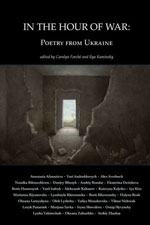
In the Hour of War: Poetry From Ukraine
edited by Carolyn Forché & Ilya Kaminsky
ISBN: 979-8-9863401-8-0
Arrowsmith Press, Medford, MA, 2023
Reviewed by Miriam O'Neil
In their introduction to In the Hour of War: Poetry from Ukraine, Carolyn Forché and Ilya Kaminsky explain their
decision-making process for the poems included "We included young and old, soldier and civilian, those [poems] bereft
of metaphor and those for whom metaphor is a way in, those [poets] still in Urkraine, those scattered across the
globe in refuge" (iii).
In other words, by not distinguishing between those in country and those in the diaspora, this anthology represents
the breath of Ukraine's living poets. There is one exception made by the inclusion of Oleh Lysheha, whose work
influenced so many of the others included here.
Forché and Kaminsky tell us that "This poetry is marked by radical confrontation with the evil of genocide: the
intentional extermination of one people by another" (iii). While Putin's genocidal assault on the Ukrainian people
has been marked by the larger world with outrage, the poets of Ukraine have continued to find words with which to
speak the truth of these hours of war with unflinching honesty and, too, with an unrelenting faith that this people
and their country will not be erased.
In Ukraine, there is a 'front line' while other spaces may not be mapped with that designation, but as the attacks
from the air and by land occur in so many different locations, even a poet who is not a soldier assumes the voice
of someone on that front line. We come to understand that almost everywhere in Ukraine IS the front. Even the living
room of a small house on the side of the road, where "they wash the dead man's body and weep" while in the next
room "they dress the bride" (iv).
Though the editors suggest that "the search for God seems muted in these poems" and "no certain God appears,"
Mortality does appear in defiance, as in Iya Kiva's poem addressing death directly, "Just one step, death, and
we'll eat you for dinner" (v) . And in "...Not To Wake Her Up" rock star poet Serhiy Zhadan describes "touching
all the scars and veins on the body of your country" (24), which brings the reader to the physical impact of
this war on this beloved place—the destruction of whole villages, of city blocks, parks, schools, orchards,
even grain fields.
Throughout the pages of In the Hour of War, poets often draw a thread back through eastern Europe's history,
to other genocides, other invasions, other wars, vis-à-vis single images. Oksana Lutsyshyna closes her poem
[eastern Europe is a pit of death and decaying plums] with the image of the Jewish-Christian, Hungarian poet
Miklos Radnoti, who was executed on a forced march from Bor to Szentkirályszabadja, writing his last poem as
the death pit fills with darkness (40).
In "1918," Ostap Slyvynsky shares a memory about World War I, of a horse being transported by train:
...all I remember from that war is
how one day, towards the end,
a horse
fell off a platform
when a train took a turn
and there was no one
to come back for him, no one
to pick him up from below the embankment
kids gave him grass,
and he lay there
with broken legs and a dull eye,
charcoal black,
like a sign left by the retreating
night to mark a path for the night
that was to come. (3-17)
Ostap's other poems, in this anthology include nesting birds, moths, and gardens, all transformed by the war
raging around them. Nothing is only what it seems when war arrives or later, when (and if) the war moves on.
As Ukrainians fight to save their country, so do these writers fight to preserve the Ukrainian language.
Lesyk Panasiuk writes "In the Hospital Rooms of My Country,"
A Ukrainian word
is ambushed: through the broken window of
the letter A other countries watch how the letter i
loses its head, how the roof of the letter M
falls through. (5-9)
In a country Russified even before Soviet times, writing in Ukrainian becomes a sustaining
practice that defies the invaders.
Though religion or religiosity may be mostly muted in this collection, the understanding that Love of life and freedom
lies at the heart of every Ukrainian writer's effort in this war is evident in these poems. Life is celebrated,
wedding vows are spoken, conversations with God and poetry itself follow on one another's heels with no pause
for cynicism. Faced with the atrocities of Bucha, Izyum, Popasna, and other scenes of genocide, Marjana Savka's
"Here lies the Lord. Slain in a coffin" tells the story of a single citizen who went "unarmored" around his
neighborhood delivering bread. The poem leans on the Resurrection story and the gospel of the Loaves and the
Fishes as we learn about the tireless kindness of one man who tried to make a difference for his community:
"Here lies the Lord. He was kind. He divided the bread," "He will rise again. Casting off his cross and
vulnerability" (16 & 20).
As Forché and Kaminsky explain, the poems selected may be "bereft of metaphor [or may use] metaphor [as]
the way in" (iii). In many cases, it is the admixture of the real and the metaphoric that brings home the
challenge of creating art within a war zone. In Dmitry Bliznyk's [Take immortality, God, but give], the
speaker tells us "the city breathes though they poke us with missiles' needlework" (9). That tautology of
a city breathing and missiles as mere needles piercing the fabric of the atmosphere doesn't romanticize
the sense of danger, but it does purvey the practical futility of giving the weapon more than its existing
share of power. Blizynk goes on to an almost philosophical pose in an echo of Basho's famous frog haiku
when he tells us, "In a time of war/ the future jumps out/ like a frog, no, a grasshopper-" (21-23). And we
understand, these are poems that insist on continuity; they are poems about forgetting and choosing what to
remember, about breathing and about writing in the language of one's own rather than the language of those
who would silence them. They are poems that recognize what Anastasia Afanasieva calls, "the difference
between quiet and the waiting" (31). We understand the absolute necessity of these poets to send their
words out into the world-to be heard. "I am writing" says the speaker in Afanasieva's
"New Song of Silence"- "and all my people are writing" (71-72).

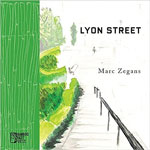
Lyon Street by Marc Zegans
Bamboo Dart Press
Reviewed by John Riley
The poems of Lyon Street are of an era. It is San Francisco of the late 70's. Those years when the U.S. had begun to face
a reckoning and accept the world, particularly the Western World, had finally rebuilt and now had economies to challenge the
eminence of the U.S. The oil producing countries of the Middle East were beginning to flex their muscles and send the
price of gas gyrating like one of the burlesque dancers in "Less Than Burlesque:"
We counted ourselves lucky, bumming drinks
from strippers in cum-stained San Francisco,
drag queens strutting above Enrico's
tranny whores dishing dirt at Clown Alley.
This is the late 70's, a few years after Stonewall, the height of the so-called sexual revolution. The sex was easy, but
love was as difficult as ever. Perhaps more so as the confusion of easy sex drove love deeper into the dark.
Many of these poems start in bars or end up in bars or at someone's home where the whiskey is the first thing to come out.
As in "Stone," when the narrator helps a woman whose husband had "walked out three weeks before" carry her bags home.
Once the bags are in the kitchen she pulls our "a bottle of shiraz" and tells him of her life as a dancer who "was
cut from the corps de ballet" in Australia and "thrown from the rocks into the ocean" to find her way to San Francisco,
a new man, and children. Now she has been deserted. All she has left is her flirtation skills. "'Come get me,' she
said turning light."
A reckoning was coming, even in San Francisco, where the beats had shown a way out of the weariness of American
materialism, and the counter-culture had centered around sexual freedom and ending a war., and where gay Americans
had heeded the call and began to gather in a city that promised some protection and human rights. The reality of
bigotry and reaction were always on the horizon, though, and finally exploded. In "Punk Poets Too ****** To Drink"
the narrator, looking back from years later, sees the night through a prism that includes the "Kill the Poor" movement
and other brutal challenges to their lives:
I remember the cop cars
burning that Dan White
night
And he knows
That's the story never told
about that San Francisco
But I saw the news crews
Spiking rage as spilt Milk
Mayor of Castro
And de-centered Moscone
were shoved aside, TV slap
at gay pride, and twinkie
excuse.
The conservative reaction was there before Dan White murdered Mayor Moscone and Councilman Harvey Milk. White was driven
to murder by his religion, as the era of the Moral Majority and Ronald Reagan approached.
Lyon Street is a polished book that incorporates an era with ease. The narrator is clearly remembering from these
years later and a slight the tone of amusement of those years, and sadness, is always there. But there is also celebration and
although his reminiscence are now tempered with wisdom, he still feels the joy of having been a young man where he could
feel free in a city that sat a little off to the side of the rest of the U.S. Years later
Dead man's point is now closed
to hikers. I went past the barrier
up the old dust hill
"The once strong place crumbles" but the narrator continues on, ignoring the don't walk signs, pushing the boundaries once
again. We know the spirit is still there and will be there until the end.

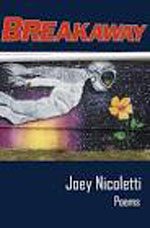
BREAKAWAY, Poems by Joey Nicoletti
Broadstone Books
www.BroadstoneBooks.com
Reviewed by Susan Isla Tepper
An alien moving through a space where flowers can still blossom. An apt metaphor here. Joey Nicoletti's newest
poetry collection serves up life on a platter. He has seen the good, bad and the ugly rise and take form in their
strange contradictory ways. These poems feel deeply personal, are sometimes sad, sometimes ironic, under the direct
light of his unwavering gaze. It just so happens that Joey and I grew up in the same neighborhood, mere blocks
apart (though we didn't know each other back then). But we shared the same coming-of-age stomping grounds, and
many of his lyrical poems brought me crashing back. Teed Street was well known in the area because it opened
onto a large empty field and worked as a short-cut for kids back then who didn't have cars and walked everywhere.
Joey's poem about Teed Street:
REVISITING 58 TEED STREET
The powerful pine
In between the scuffed, dented,
metallic, white garage door
has shrunk and faded,
like my favorite burnt orange
Spider-Man t-shirt
I wore at least once a week
during every gypsy-moth
caterpillar infested-summer
and every escalated parental argument
of my boyhood: my father
and mother's fury
fueled by longing, bills, taxes,
an abundance of overtime,
weed, wine, passion
and abuse by their parents,
two of whom lived with us;
a stop sign, leaning
on the chipped wooden torso
of a lamplight; today's sun
strumming power lines:
playing chords in one
of the most sorrowful songs that
I am immeasurably grateful
I never, ever, have to sing again.
Family, or as the Italians say, la famiglia, is a crucial starting point for most of the poems which are set in
different places and span decades apart. Cravings carries the reader clear across the country to San Francisco,
and deals with family from a different place in the heart.
CRAVINGS
San Francisco, how sweet you talk
at night, whispering your misty history
into the open, majestic mouth
of my hotel room window. I look
towards the bathroom. I imagine
my love, stepping out of the shower
in another room, a bigger one
two floors up, ten years earlier,
before the Buffalo snow, smoke, and ice joined
our family, back when my ambition was
a row house, a lavender
Painted Lady, 2.5 miles from here, and endless
concerts of clanging: all of the trolley rides
I could ever want. But tonight
I crave a round of sleet, pounding the roof
as my love steps into a hot bath, the Boston
terrier and Schnauzer, chasing the short-haired cat
down the hall; streets glittered with salt.

When did you begin writing, Andrew?
I have been writing all my life but have dedicated myself to it in 2010. I took a workshop with Alistair MacLeod,
author of No Great Mischief, winner of the International Dublin Literary Award and a wonderful writer, who gave me
generous encouragement. That validation persuaded me that others would read my work.
In writing "Saying Goodbye" did you reflect on your own life?
"Saying Goodbye" is rooted in a time and place I am most familiar with, streets I walked, air I breathed.
I hoped to convey some of the feel of Bratislava in the 1970s in my novella. The character of Adam shares
life experiences with me, his thought processes are not unfamiliar.
Any favorite authors and poets?
I have an enormous list of favorite writers; I can only mention a few. For over half a century I have been returning
to the short stories of William Saroyan. In troubled times I reread Anne Tyler. I am a huge fan of Elizabeth Strout.
Recently I discovered Claire Keegan. Mary Oliver is a great consolation. I wish I'd written Gatsby.
What inspires you to write?
I could talk about inspiration for an hour. I am constantly being inspired, by sights and sounds, tastes
and smells and above all by words.
What was it like growing up in Czechoslovakia?
Growing up in Czechoslovakia was like being swept up by a river, say the Danube. Exhilarating, frightening,
all-encompassing and something that influenced every pore of my body. I continue to float in that stream.
Any future writing that you could tell us about?
I am writing a novel, cannot say too much about it. It will, I have to believe, be written, and one day read.
Thanks, John, for the questions, and to Gloria for publishing Saying Goodbye.

In May, I was the guest poet at the 51st Poetry Outreach Festival at CCNY in NYC. I heard this poem by
Corvus Chanoine and thought it was so well written. I asked permission to publish it in my newsletter.
Corvus is in high school in the NYC area.
Old Temple Walls by Corvus Chanoine
There were little things I never noticed about the temple,
Never noticed until it was gone.
The old granite pillars, pockmarked by age,
The walls off-white from handprints
And years of leaning on them
While laughing so hard your ribs hurt.
The cozy-cramped rooms,
Bright and colourful, stamped with
Childrens' drawings and stained glass.
A thousand prayers stitched together into one building,
Returned to time and time again,
Old and unchanging, a tree trunk against the wind—
Until the wind knocked it over.
Until it was replanted in pale mortar earth,
Drywall masquerading as soil.
The walls are too white, the rooms are too big,
And there is no one there.
Prayers punched through with wrecking balls,
Drawings folded up and packed away.
No one is in the building.
No one has returned.
I go back to the rooms that haven't changed,
Thank the Lord and His buildings,
But in its off-hours, the silence chokes,
The rooms with walls too wide fold in,
And I am a toddler stumbling in the Sanctuary,
Trying to grasp challah in my too-small hands,
And my mother is just out of sight,
Talking to the Rabbi, while I
Choke on unchewed prayer bread.
It's too big. There's no one here,
No bodies and voices rising in prayer,
No bustling murmur, no shuffling talit fabric.
I go downstairs.
The Chapel is still too dark,
Even with huge stained glass windows
Blackened by years of prayers,
Rising high and knocking on their
Glass barrier, compounding.
How many of mine push against the glass?
How many prayers haven't been answered,
Simply because they never made it?
The chairs are still stacked too high.
When we were younger, we made bets.
A quarter to whoever could climb the highest
Chair tower, far taller than ourselves,
Far more dangerous than we imagined.
We were children; we didn't care.
I sit in the dark on a throne of stacked chairs,
Memories prostrated at my feet like supplicants,
And I am God of the past in these old temple walls
By virtue of being the only one in the room,
Stuck in old memories that I thought would last forever.
Our next poem in the spotlight is my Andrea Johnson. It was written after she met the poet Karen Friedland
and the poem is dedicated to Karen.
I forgot to tell you....
Today we met for lunch
arranged by a mutual friend
at a street side café birthed by a pandemic.
I forgot to tell you, a published poet,
about my driving Robert Pinsky home
so many years ago.
And also, I never shared about my ancestor,
an Irish poet
whose work does not resonate with me
except his poem our bed and breakfast hostess
printed on the paper placemats of her Adare establishment.
I did tell you about my taking a course with Helen Vendler
at the Yeats Summer School in Sligo.
But did I tell you that I bought her a beer at the Harp Tavern?
Do you remember I told you I have seen Billy Collins twice in person?
I forgot to tell you that I attended an event with Seamus Heaney,
whom you met when you worked at Harvard.
Most of all, I never told you that you,
sitting across from me,
were so beautiful
with your blue cap allowing tiny emerging silver hairs to show near your ears
your big unusual brown eyes
your bowed lips
and your Spirit
reflecting gentle strength in the face of
what's gone before and what's to come.
Perhaps one day I will tell you.
See you next month.

Červená Barva Press Staff
Gloria Mindock, Editor & Publisher
Renuka Raghavan, Assistant Editor, Publicity
Flavia Cosma, International Editor
Helene Cardona, Contributing Editor
Andrey Gritsman, Contributing Editor
Juri Talvet, Contributing Editor
John Wisniewski, Interviewer
Karen Friedland, Interviewer
Miriam O' Neal, Poetry Reviewer
Annie Pluto, Poetry Reviewer
Christopher Reilley, Poetry Reviewer
Susan Tepper, Poetry Reviewer
Neil Leadbeater, Poetry Reviewer
John Riley, Poetry and Fiction Reviewer
William J. Kelle: Webmaster
Gene Barry (In Memoriam)
See you next month!


If you would like to be added to my monthly e-mail newsletter, which gives information on readings,
book signings, contests, workshops, and other related topics...
To subscribe to the newsletter send an email to:
newsletter@cervenabarvapress.com
with "newsletter" or "subscribe" in the subject line.
To unsubscribe from the newsletter send an email to:
unsubscribenewsletter@cervenabarvapress.com
with "unsubscribe" in the subject line.

Index |
Bookstore |
Our Staff |
Image Gallery |
Submissions |
Newsletter |
Readings |
Interviews |
Book Reviews |
Workshops |
Fundraising |
Contact |
Links
Copyright @ 2005-2023 ČERVENÁ BARVA PRESS - All
Rights Reserved
|

